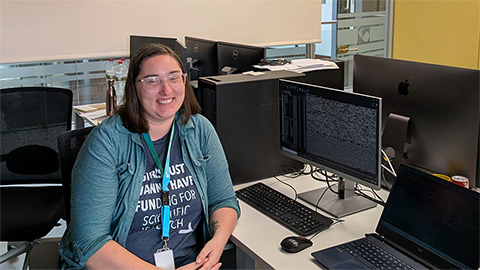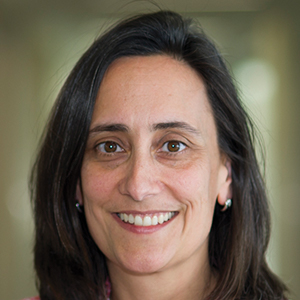You will survive
“I can’t believe the grief I feel,” I said, feeling weak and numbed from days of inadequate sleep. “It’s like someone died.” “No, it’s not like death,” my father said. “This is much more like divorce.”
My father, whose divorce with my mother was the singular, defining event of my childhood, always had been an enigma to me. But we had bonded during my teens over shared pots of late-night coffee while he, a lawyer, and I, a high school student, did our respective homework. Now, at last, I understood him, and I felt a tremendous wave of empathy. He too had suffered.
He had come to help take care of my two young sons — then aged 3 years and 3 months — while I attempted to manage the aftermath of a tenure denial. The tenure denial, which is now a comfortable seven years behind me, had hit me like a freight train, racing from the wrong direction down an unseen track. The stress of job loss, mixed with my postpartum haze, had put me among the walking dead; and advertising promises notwithstanding, Cymbalta could not help.
My father was there to provide logistical support of a kind I rarely received as a new parent, and I was grateful. But more important was his metaphor. It gave me a framework for making sense of the nonsense. When I began to look at my situation using the language and logic of relationships rather than the metrics of job performance, I started to see a pattern.
A relationship can be dysfunctional, even abusive. When I looked at my relationship with the inorganic division where I improbably had been placed, I began to recognize the signs of dysfunction. I had been recruited to the department by an enthusiastic department chair. Though the division wanted a synthetic inorganic chemist, he saw in me — a biochemist — an opportunity to recruit a skilled person who filled other departmental needs. It was a shotgun marriage, but he assured the rest of the department that we would learn to love each other.
Alas, we did not. There were other differences. I was trained in California; they were trained in the east. I was young; they were old. I was female; they were male. I was a new mother and breadwinner; their wives largely stayed at home. They were tenured and held sway; I was not and did not. A power differential and cultural divide separated me from the partners in my arranged match. Like members of a wealthy family (i.e., a well-heeled private institution), they could afford to wait out my contract and attract a new partner with an even bigger, shinier diamond ring.
My father was right.
Grief has seven stages. However, Gloria Gaynor, in her 1978 hit song “I Will Survive,” described just three steps to getting over a breakup.
“At first I was afraid, I was petrified; kept thinking I could never live without you by my side.”
Fear. Holy terror. That was step 1. I had a young family, a mortgage and bills. I could not afford to be out of work. More than once, I imagined my sons, faithful husband and me all sleeping under a bridge somewhere.
“But then I spent so many nights thinking how you did me wrong.”
My father had led me to step 2: understanding and coming to grips with a system that was not always fair or even rational. Life isn’t always fair, and for the rest of my life, I can tell my kids that fact with some authority. People, either on the playground or in the conference room, can be thoughtless, petty and even downright mean.
“And I grew strong. And I learned how to get along.”
There was step 3: getting past it.
Getting beyond tenure denial and consequent job loss meant a lot more than just burying hurt feelings. Our lives would have to undergo an enormous reorganization. One of my former co-workers, one who didn’t look the other way when I walked down the hall, said at the time, “You’re a female scientist with an NIH grant. You have nothing to worry about!” That was before my family and I found ourselves moving four times in two years, before I had my third child alone in a strange new town and before we underwent the largest sustained loss of income in our adult lives. For seven years, we had built our lives and futures around my former institution. Now we, a family of five, had to rebuild every aspect of our daily existence from the ground up.
I saw my research teetering across the same brink. There were many times I thought I would have to trade in my hard-won grant and dreams for pharmacy school. However, I was able to keep my grant by landing a job in a research institute. With strenuous effort and good luck, I somehow maintained a level of productivity in spite of losing my entire research group. My husband, a chemist, and I now joke that we could find a way to do science with only paperclips and a roll of duct tape in the back of a speeding van à la MacGyver. Things were tough, but we were dogged and creative. We were surviving.
And then I met her.
While attending a scientific conference, a colleague told me her university had an open-rank faculty search and that I should apply. That turned out to be the beginning of a beautiful friendship. If tenure denial is like divorce, then functioning professional societies like the American Society for Biochemistry and Molecular Biology provide an essential network for forging new connections. From day one, my current academic position has been a decidedly better match, and that has made all the difference.
Enjoy reading ASBMB Today?
Become a member to receive the print edition four times a year and the digital edition monthly.
Learn moreGet the latest from ASBMB Today
Enter your email address, and we’ll send you a weekly email with recent articles, interviews and more.
Latest in Opinions
Opinions highlights or most popular articles

Women’s health cannot leave rare diseases behind
A physician living with lymphangioleiomyomatosis and a basic scientist explain why patient-driven, trial-ready research is essential to turning momentum into meaningful progress.

Making my spicy brain work for me
Researcher Reid Blanchett reflects on her journey navigating mental health struggles through graduate school. She found a new path in bioinformatics, proving that science can be flexible, forgiving and full of second chances.

The tortoise wins: How slowing down saved my Ph.D.
Graduate student Amy Bounds reflects on how slowing down in the lab not only improved her relationship with work but also made her a more productive scientist.

How pediatric cataracts shaped my scientific journey
Undergraduate student Grace Jones shares how she transformed her childhood cataract diagnosis into a scientific purpose. She explores how biochemistry can bring a clearer vision to others, and how personal history can shape discovery.

Debugging my code and teaching with ChatGPT
AI tools like ChatGPT have changed the way an assistant professor teaches and does research. But, he asserts that real growth still comes from struggle, and educators must help students use AI wisely — as scaffolds, not shortcuts.

AI in the lab: The power of smarter questions
An assistant professor discusses AI's evolution from a buzzword to a trusted research partner. It helps streamline reviews, troubleshoot code, save time and spark ideas, but its success relies on combining AI with expertise and critical thinking.

